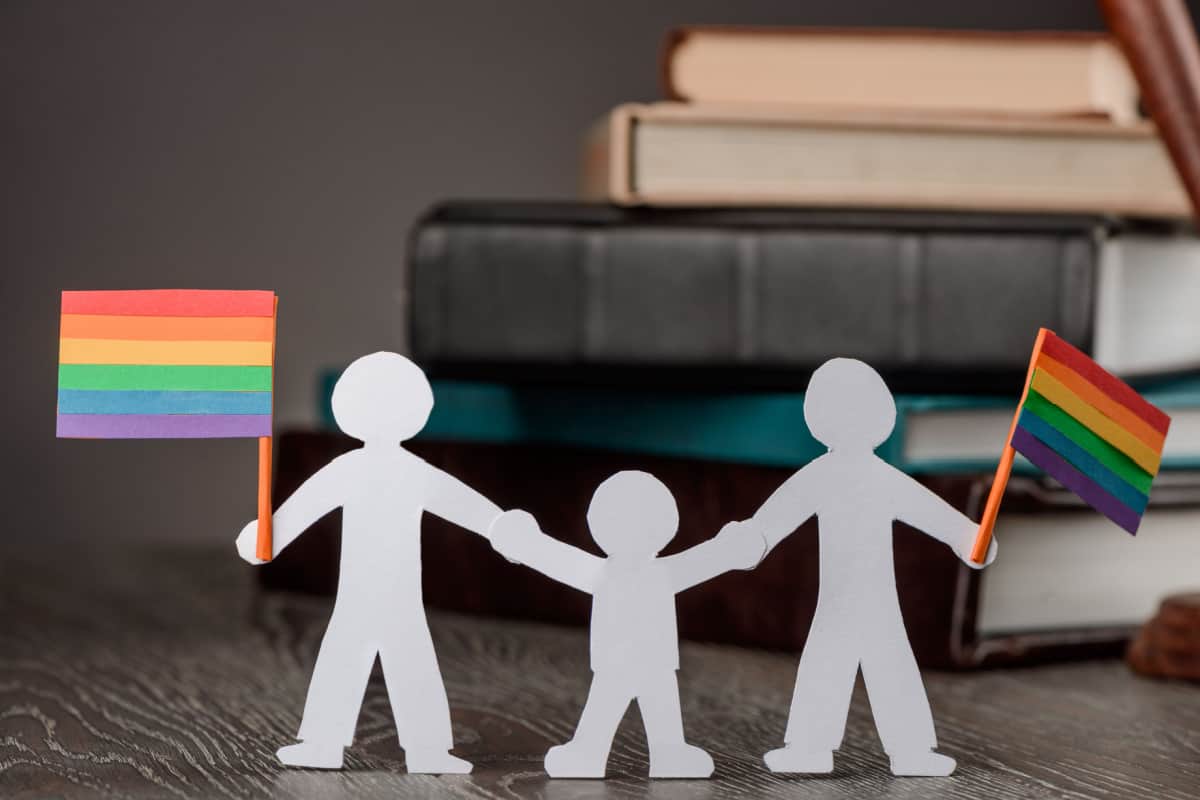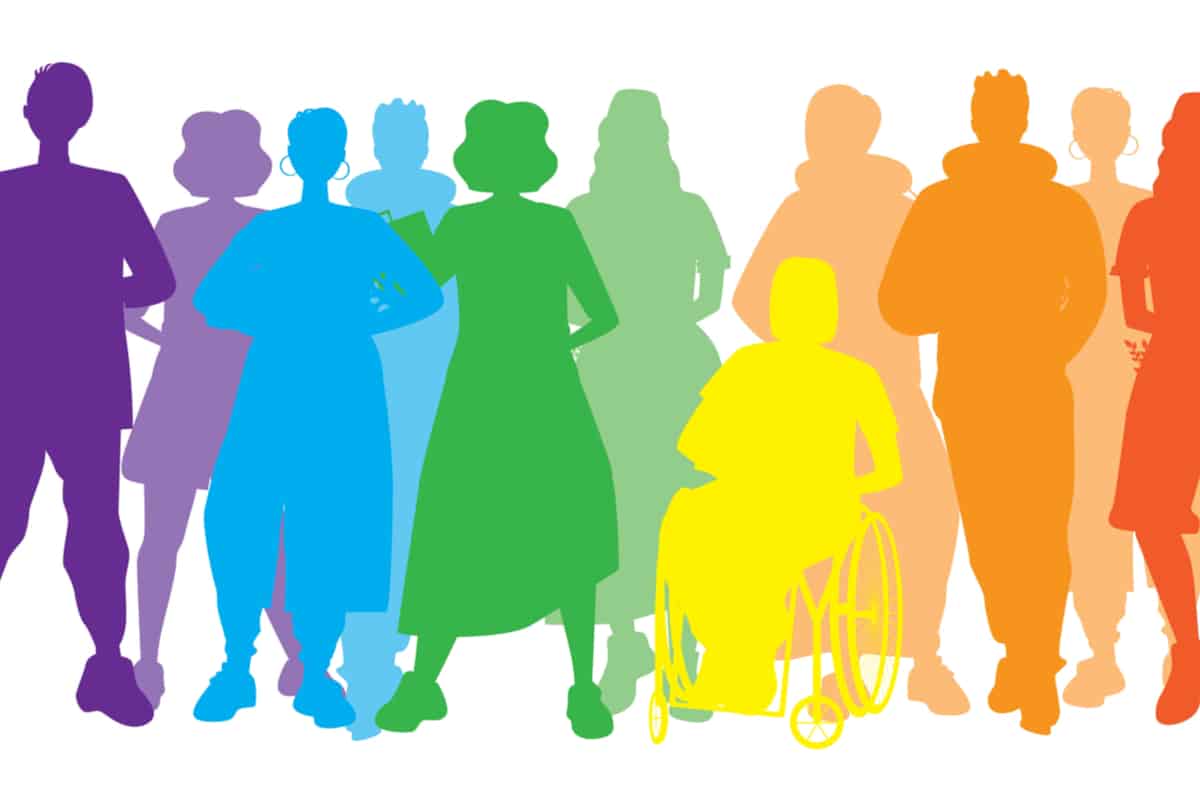The Changing Landscape of Family Law: LGBTQ+ Rights in Divorce

When marriage equality became the law of the land in the United States, same-sex couples were able to enjoy the right to legally marry, no matter which state they lived in. However, just as with opposite-sex couples, there’s no guarantee marriage will last forever. So far in 2023, several famous same-sex couples have announced their divorces, including pop music icon Ricky Martin and his husband Jwan Yosef, and Kinky Boots and Pose star Billy Porter and his husband Adam Smith.
Marriage equality laws have opened doors for LGBTQ+ couples, allowing them legal recognition and rights formerly restricted to heterosexual couples. With these advancements, new aspects of divorce law have emerged, tailored to address the unique needs and situations of LGBTQ+ individuals. Understanding these changes and how they affect LGBTQ+ couples during a divorce requires a close look at laws, policies, and court decisions. These aspects collectively create a landscape that reflects evolving societal views and increased legal protections for LGBTQ+ couples. The growth in recognition and rights paints a promising picture for future developments in family law.
Marriage Equality Acts: Impact on Divorce Proceedings
Marriage Equality Acts have had a substantial impact on divorce proceedings, especially for LGBTQ+ couples. Before these acts, many LGBTQ+ couples were denied legal recognition of their relationships. With the introduction of marriage equality laws, same-sex marriages gained legal status, leading to new considerations in divorce law. Areas such as child custody, asset division, and spousal support were now applicable to LGBTQ+ couples, just as with heterosexual couples. The laws provided a framework for treating all couples equally in the eyes of the court. These changes represented more than just legal adjustments; they symbolized societal progress toward fairness and inclusion. Marriage Equality Acts have thus not only transformed the way marriages are viewed but have also set new standards for divorce proceedings, promoting equality across the board.
Custody Battles: How LGBTQ+ Rights Have Evolved
Custody battles involving LGBTQ+ couples have seen notable changes over time. In earlier periods, courts often favored heterosexual parents, leaving LGBTQ+ individuals at a disadvantage. As laws and societal views evolved, more equitable considerations began to emerge. New statutes and court decisions started to recognize the rights of LGBTQ+ parents, focusing on the best interests of the child rather than the sexual orientation of the parents. Factors such as stability, love, and support became central in custody decisions. A more balanced approach to assessing parental qualifications developed, reflecting a shift away from bias and toward understanding. These changes in handling custody battles for LGBTQ+ couples signify a growing awareness and acceptance within the legal system. The focus on children’s welfare and fairness to all parties involved marks a positive evolution in family law.
Asset Division: Key Considerations for LGBTQ+ Couples
Asset division in divorce cases involving LGBTQ+ couples has become a subject of interest as family law evolves. Previously, without legal recognition of same-sex marriages, clear guidelines for dividing assets were lacking. With the acceptance of marriage equality, standards for dividing assets like property, savings, and debts among LGBTQ+ couples began to align with those for heterosexual couples. Legal considerations now include factors such as the length of the marriage, contributions to the partnership, and individual needs following the divorce. These aspects are evaluated without regard to sexual orientation, reflecting a more equitable approach. The transformation in asset division demonstrates how family law is adapting to societal changes, ensuring LGBTQ+ couples are provided with fair and consistent treatment in legal matters. It highlights ongoing efforts to promote equality within the legal framework of divorce.
Alimony Considerations: Understanding Specifics for LGBTQ+ Divorces
Alimony, or spousal support, is an important aspect of divorce, and its application to LGBTQ+ divorces has been an evolving subject. Before the legal recognition of same-sex marriages, alimony was often a complex issue for LGBTQ+ couples. With the changes in marriage laws, LGBTQ+ couples are now subject to the same considerations as heterosexual couples when it comes to alimony. Factors such as the duration of the marriage, financial contributions, earning potential, and needs of both partners are examined in determining support. The objective is to achieve a fair balance, acknowledging the unique circumstances of each case. By incorporating LGBTQ+ divorces into the standard legal process for alimony, a significant step has been taken toward equality. These considerations reflect a commitment to fairness and recognition, and all individuals are treated equitably within the realm of family law.
Mediation and Collaborative Divorce: Alternative Pathways for LGBTQ+ Couples
Mediation and collaborative divorce offer alternative paths for LGBTQ+ couples seeking to separate. These methods provide options outside traditional litigation, often making the process more amicable and less adversarial. In mediation, a neutral third party assists the couple in reaching agreements on issues like asset division, child custody, and alimony. Collaborative divorce, on the other hand, involves both parties working together with their lawyers to resolve matters without court intervention. These pathways can be particularly beneficial for LGBTQ+ couples, as they allow for greater flexibility and understanding of unique dynamics and concerns. By focusing on communication, cooperation, and mutual respect, these methods strive to reach fair resolutions to satisfy both partners. Mediation and collaborative divorce represent a shift in how family law is approached, offering LGBTQ+ couples more personalized and compassionate ways to conclude their marriage.
Future Perspectives: Anticipated Developments in LGBTQ+ Divorce Law

Looking ahead, LGBTQ+ divorce law is likely to continue evolving. As societal acceptance grows and legal landscapes shift, new considerations and challenges may arise. Potential areas of growth include further refining laws around child custody, asset division, and spousal support to address the unique needs of LGBTQ+ couples. Legislative changes and court rulings may also reflect a greater emphasis on equality and fairness. Advances in technology could offer new ways to facilitate the divorce process, making it more accessible and tailored to individual circumstances. Additionally, more research and education can lead to a deeper understanding of how to best serve LGBTQ+ individuals during divorce. While it is impossible to predict every change, the trend towards inclusivity, fairness, and adaptability suggests a future in family law recognizing and responding to the diverse needs of all couples, including those in the LGBTQ+ community.
If you are in the process of going through a divorce, contact us online or by calling 949-438-3886.

